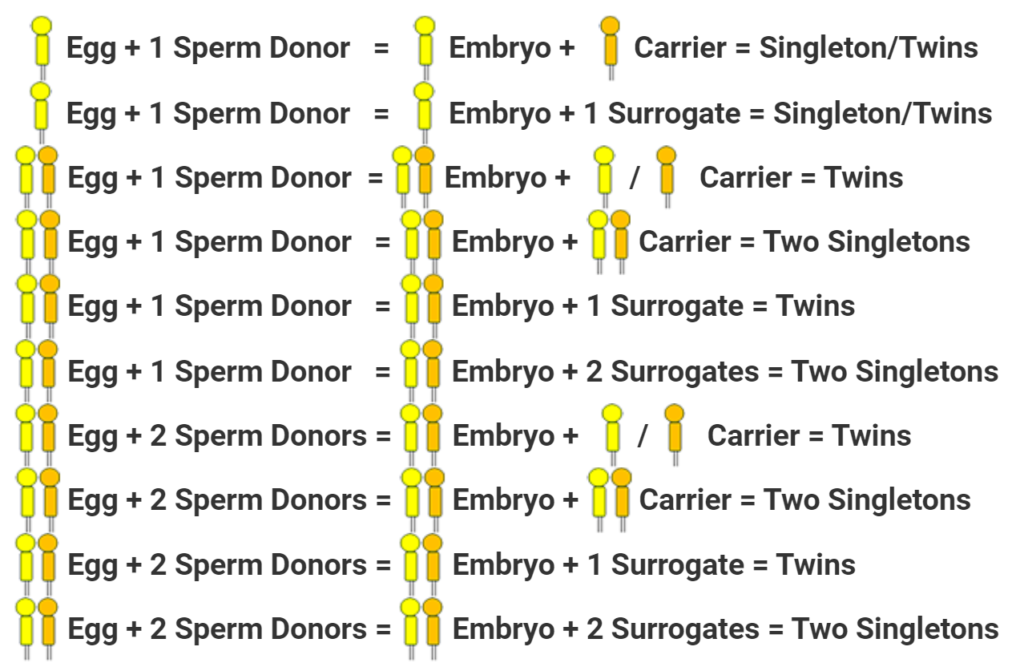Intended Parents FAQs
Discover essential surrogacy insights on our FAQ page tailored for intended parents. Our resource answers pressing questions, covering the surrogacy process, legal considerations, and emotional support, making your journey to parenthood clearer. From “What to ask a surrogacy agency” to “Preparing emotionally for surrogacy,” we provide the crucial information you need. Navigate the path to building your family with confidence, backed by expert advice and answers at every step.
FAQS
As we’re all aware of, children who are born in the United States are automatically entitled to for U.S. citizenship and U.S. passports, regardless of the citizenship of their intended parents.
Due to legal constraints, we only provide sperm and blood shipment from Hong Kong for male client. So if you live in Hong Kong or mainland China and countries close to Hong Kong, we will arrange you to come to Hong Kong to leave sperm and blood. However, we have to make sure that you have valid US VISA so that you can come to take baby back when delivery.
You will be required to come to the United States at least twice-for the creation of the embryos at the IVF Clinic and the eventual delivery of the child. Of course, if you and your surrogate choose, you can visit more frequently. If you do not plan to come to pick up your child, we provide full concierge service to take care of your child, obtain birth certificates/SSN/passport and other necessary legal documents, and then send your baby to where you live.
Of course! We work with intended parents of all backgrounds—single individuals, same-sex couples, and heterosexual couples.
The length of the process depends on several factors. We typically tell intended parents that they should plan on 18 months from the time they signing on with us until they have a child, although it can be quicker or longer depending on the legal requirements involved and the course of the IVF treatment.
You can start your surrogacy process with signing up our website and applying as Intended Parents, then you’ll have access to our database with our authorization.
There are two types of surrogacy—traditional surrogacy and gestational surrogacy.
Traditional Surrogacy:
In which the surrogate either undergoes artificial insemination or IVF with sperm from the male or from a sperm donor. The surrogate herself provides the eggs and is therefore genetically related to the child. This form of surrogacy is the older method and because of the genetic link between the surrogate and the baby, there is some downside risk to this form of surrogacy.
Gestational Surrogacy:
In which the surrogate carries a pregnancy and delivers a child that is created from the egg and the sperm of the intended parents and/or donor egg and /or donor sperm and/or donated embryos in any combination. The key to this type of surrogacy is that the gestational surrogate is not genetically related to the child and acts only as a gestational carrier for the pregnancy.
Surrogacy is a legal arrangement where a woman (the surrogate) carries and gives birth to a child on behalf of another person or couple (the intended parents).
People may choose surrogacy for various reasons, such as infertility, medical conditions that make pregnancy impossible, or same-sex couples who wish to have a biological child.
Surrogacy typically involves a legal agreement between the intended parents and the surrogate. The surrogate undergoes medical procedures to become pregnant using either the intended parents’ genetic material or donated sperm and eggs. The surrogate carries the pregnancy to term and delivers the baby, who is then legally transferred to the intended parents.
There are two main types of surrogacy: traditional surrogacy and gestational surrogacy. Traditional surrogacy involves the surrogate’s own egg being fertilized with the intended father’s sperm or donor sperm. Gestational surrogacy involves the implantation of an embryo created using the intended parents’ or donors’ genetic material into the surrogate’s uterus.
Surrogacy laws vary by country and even within different states or regions. It’s important to research and understand the legal regulations regarding surrogacy in your specific location.
Surrogates and intended parents are typically matched through surrogacy agencies or with the help of a surrogacy attorney. Compatibility factors such as personal preferences, medical history, and legal considerations are taken into account during the matching process.
Surrogacy can involve emotional, legal, and financial complexities. It’s important to be aware of the potential risks, including the possibility of unsuccessful pregnancies, legal disputes, and the financial costs associated with the process.
The cost of surrogacy can vary significantly depending on factors such as location, agency fees, medical expenses, and legal fees. Please refer to the “cost” page for details.
The duration of the surrogacy process can vary. It typically involves several months of preparation, including legal agreements, medical procedures, and finding a suitable surrogate. The overall timeline can range from one to two years or more.
At OneWorld Generations, we do not have intended parents wait for a profile to review since we always have available surrogates to match.
Surrogacy agencies and support groups can provide guidance, emotional support, and resources for both intended parents and surrogates throughout the surrogacy journey.
OneWorld Generations sets itself apart with its unique “No match, no fee” policy. This means that we do not charge any fees until the surrogate’s medical records have been pre-reviewed by the IVF physician of the intended parents. This policy provides peace of mind, as intended parents do not have to worry about spending money without receiving any profiles or finding a suitable match. OneWorld Generations is committed to ensuring a fair and transparent process, putting the financial concerns of intended parents at ease until a compatible surrogate has been identified.




